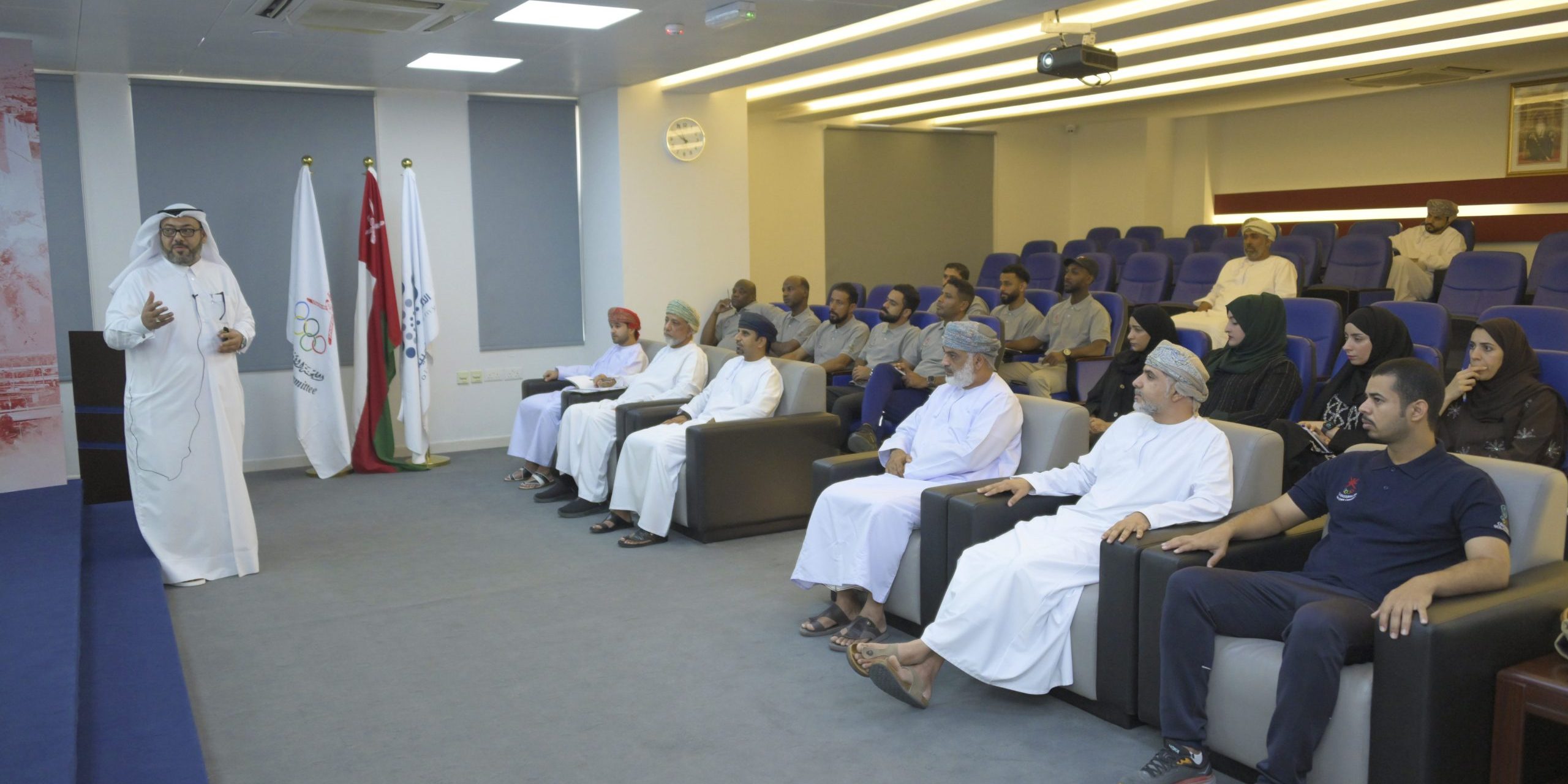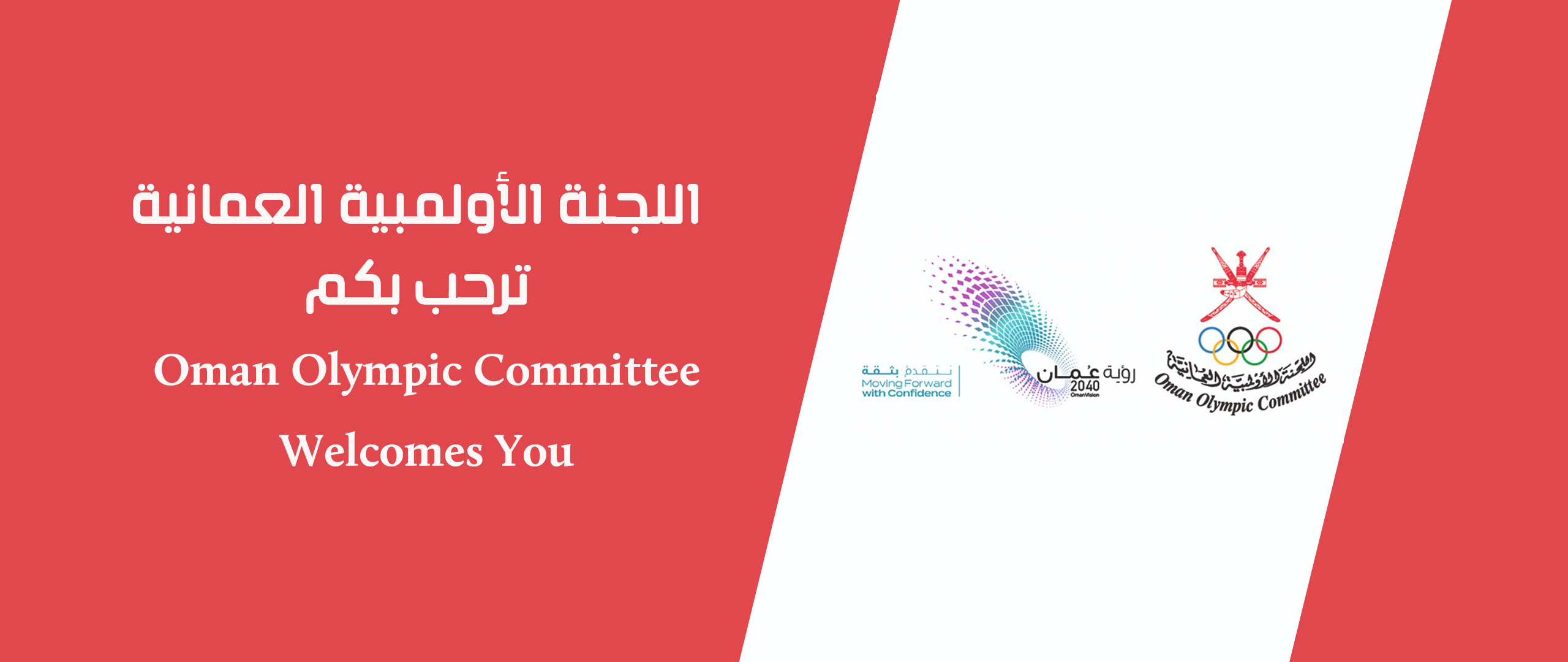OOA organizes a project to promote Olympic culture and values in cooperation with International Olympic Solidarity.
Yesterday morning, Monday, marked the beginning of the 1st station of the program ‘Training of Trainers in Olympic Values Education,’ organized by Oman Olympic Committee (OOC) represented by Oman Olympic Academy (OOA) in collaboration with International Olympic Solidarity. The first workshop of the program was held at the headquarters of OOC and will conclude this evening, Tuesday. It will also be held at the Directorate of Culture, Sports, and Youth in Al Dakhiliyah Governorate starting from tomorrow for two consecutive days, and at the Directorate of Culture, Sports, and Youth in Al Dhahirah Governorate on Sunday and Monday of the following week. This program aims to support Oman Olympic movement across various segments of society, including athletes, coaches, students, and teachers, by enhancing awareness of Olympic philosophy and its importance in shaping Omani Olympic champions.
This program is part of the project to promote Olympic culture and values, which is one of the important projects adopted and supported by IOC. It involves the use of educational materials and guides on Olympic values education issued by the International Olympic Solidarity. It contributes to reinforcing Olympic values and principles among young athletes, students, and children of various ages and educational stages through sports activities based on learning and applying behavioral and educational values endorsed by the International Olympic Committee.
The program is presented by Hisham bin Salem Al-Adwani, the project manager accredited by International Olympic Committee, along with Dr. Ali bin Abdulrahman Al-Bakri as the main lecturer of the program, and Abdullah bin Khalfan Al-Hinai as the assistant lecturer. The program includes a wide range of national personnel working in sports institutions and bodies in the Sultanate of Oman, including clubs, sports academies, and private teams.
The project to promote Olympic culture and values in Oman is divided into two programs: the Training of Trainers in Olympic Values Education program and the Olympic Culture and Values Initiatives program. The project will be implemented in all governorates of Oman gradually over two years (2024-2025) as a first phase, with an evaluation before starting subsequent phases. The first phase includes Muscat, Al Dakhiliyah, and Al Dhahirah, while the second phase includes the governorates of South and North Al Batinah and Musandam during the last quarter of 2024.
The project idea revolves around training a group of trainers (future trainers) selected based on a mechanism aligned with the Olympic Values Education Program over two consecutive days of theoretical and practical lectures. They are introduced to the program’s applications and taught how to utilize its resources and curriculum, tailored to the general direction of IOC, considering the Omani society’s environment. Additionally, some local initiatives are introduced to enhance Olympic education in Oman. After training and accreditation, these trainers apply the knowledge, skills, and experiences gained over two days autonomously within three months, disseminating them within schools, clubs, or centers they belong to. The best applications and initiatives executed by them are then evaluated and the top three local applications are selected by a central committee composed of four local judges to determine the winning schools, clubs, or centers, with the top three places in all initiatives considered.
Regarding the program, Hisham bin Salem Al-Adwani, the project manager, stated: ‘The project to promote Olympic culture and values in Oman has been designed to align with the formation of the Omani society and the committee’s goals to support the Olympic movement in Oman. It meets the International Olympic Committee’s direction in instilling Olympic values and principles among society’s segments, especially athletes, making sports a platform for enjoyment through training efforts, competitions, excellence, forming friendships, and respecting laws, colleagues, coaches, referees, and everyone.’
He added: ‘The project’s importance lies in expanding the fields and segments targeted by OOC to support the Olympic movement in the Sultanate of Oman, by reaching out to schools, clubs, academies, sports centers, and even private teams, where athletes are initially trained. It establishes a strong relationship between OOC and the sports community, changing the perception of the role of OOC to participate not only in Olympic events and sports competitions but also in promoting Olympic values.’
Al-Adwani pointed out that the project has multiple objectives, including supporting and instilling the principles of the Olympic movement among youth and young people in Oman, promoting Olympic culture and values among coaches, students, and athletes in schools, clubs, academies, sports centers, and private sports teams, in addition to equipping teachers and coaches with the skills and knowledge to instill Olympic values among students and athletes in training sessions and sports competitions.
He continued, saying: ‘After the project was designed, it was approved by OOC Board of Directors and received support from the International Olympic Committee due to its significance, objectives, and execution mechanism. It includes two programs: the Training of Trainers in Olympic Values Education program, targeting coaches and school sports teachers in all governorates of Oman over four periods. In each period, three governorates are selected, and 30 trainers and teachers are trained for two days from each governorate, totaling 330 trainers and teachers recognized by OOA as trainers for Olympic values education.’ He added, ‘The second program is dedicated to Olympic Culture and Values Initiatives, designed to encourage trainers to compete in applying what they have gained from the training program in the clubs, academies, and schools they belong to through initiatives. Then, the best applications (initiatives) executed by the trainers are evaluated through a form sent to the accredited program director at OOC with videos and photos documenting the initiative. The top three initiatives are evaluated and selected by a central committee consisting of four judges based on criteria that consider sustainability, innovation, and practical application.’
Regarding the lectures provided, Al-Adwani explained that the theoretical lectures include an introduction to the history of the Olympic movement, its values, principles, symbols, and related issues as fundamentals. Afterwards, the lecturer and his team execute practical activities as models for applying Olympic values through practice, while the trainers design activities and exercises that instill Olympic values and reflect the skills and knowledge acquired.
Regarding the evaluation mechanism for initiatives, Hisham Al-Adwani indicated that a judging committee was formed, tasked with evaluating the initiatives executed by the participants in the sectors they belong to. An initiative submission form was designed, and criteria were established for the judging committee to evaluate the initiatives. Monetary incentives were also allocated to encourage the top three winners.’





